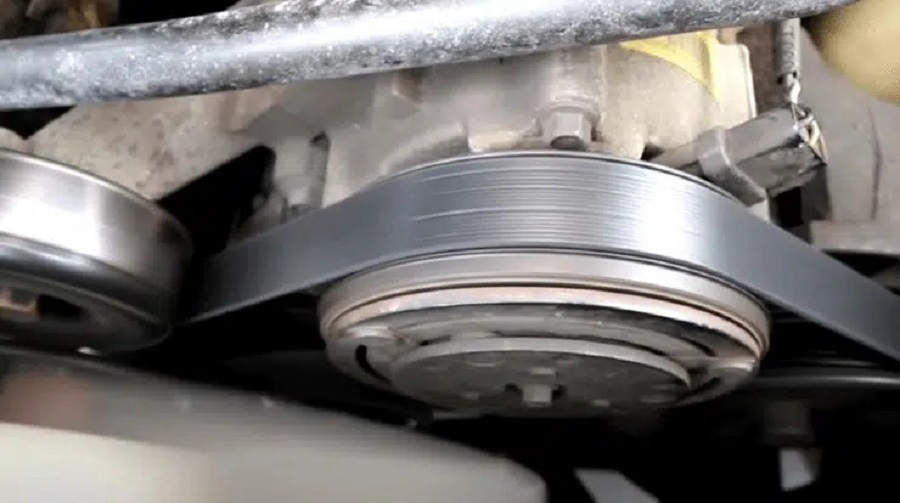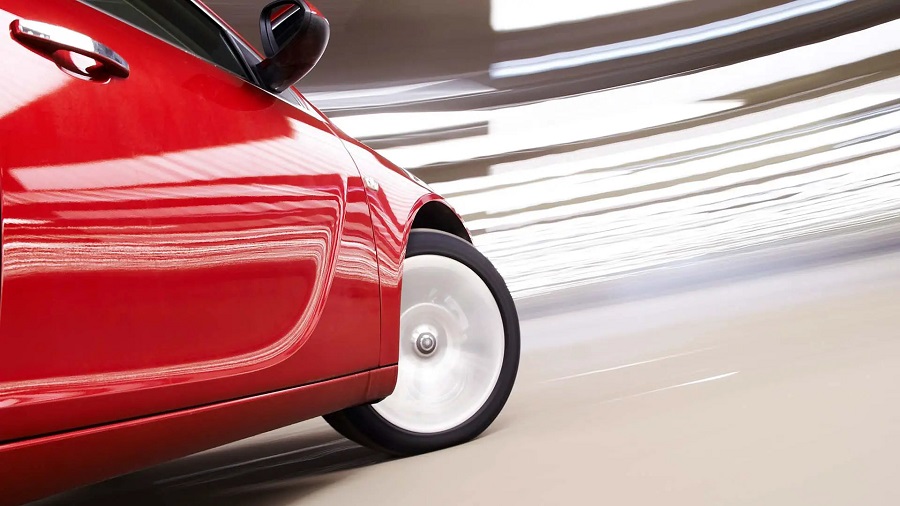You’re not alone if you’ve ever experienced a squeaking noise when turning your car. This common problem can be both annoying and concerning for car owners. In this article, we will explore why does my car squeak when i turn, how to identify the source of the squeak, and the solutions to resolve this issue. So let’s dive in and understand the mechanism of a car and the various factors that may cause it to produce such sounds.
Understanding the Mechanism of a Car
It’s essential to grasp how a car operates to comprehend why your car squeaks when turning. A car is a complex machine with multiple components working together to provide mobility. Turning the steering wheel activates the power steering system, enabling the wheels to change their direction. Several components are involved in this process, including the suspension, power steering system, and wheel bearings.

Why Does My Car Squeak When I Turn?
- Worn-out or damaged suspension components: One of the primary causes of squeaking when turning is worn-out or damaged suspension components. Over time, components like ball joints, control arms, and bushings may deteriorate, leading to increased friction and noise.
- Faulty power steering system: A faulty one can also contribute to squeaking sounds. Issues with the power steering pump, steering rack, or fluid leakage can cause noise when the steering wheel is turned.
- Problems with the wheel bearings: Wheel bearings are crucial in ensuring smooth wheel rotation. They can produce a squeaking noise if worn out or damaged, especially when turning.
Identifying the Source of the Squeak
To address the squeaking issue effectively, it’s important to pinpoint the source of the sound. Here are a couple of methods to help you identify the source:
- Listening to the sound: Pay close attention to the sound when you turn your car. Does it come from the front or rear? Is it more prominent on one side? Understanding the location of the sound can help narrow down the potential causes.
- Visual inspection: Inspect the suspension components, power steering system, and wheel bearings. Look for signs of wear, damage, or leaks. Sometimes, a simple visual examination can reveal the underlying problem.
Solutions for Car Squeaking When Turning
Once you have identified the source of the squeak, you can explore the appropriate solutions:
- Replacing worn-out suspension components: If the squeaking is caused by worn-out or damaged suspension components, such as ball joints or control arms, it’s crucial to replace them. Consult with a qualified mechanic who can inspect the suspension system and recommend the necessary repairs or replacements. By addressing these issues promptly, you can restore smooth and quiet turning.
- Repairing or replacing the power steering system: If the power steering system is to blame for the squeaking noise, it must address the problem to ensure safe and effortless steering. Depending on the specific issue, repairs may involve fixing the power steering pump, replacing the steering rack, or resolving fluid leakage. A professional mechanic can diagnose the exact problem and provide the appropriate solution.
- Fixing or replacing faulty wheel bearings: If the wheel bearings are causing the squeaking sound, they may need to be fixed or replaced. Wheel bearings enable smooth wheel rotation, and worn-out or damaged bearings can result in noise when turning. A skilled mechanic can assess the condition of the wheel bearings and determine the necessary repairs or replacements.
Importance of Regular Maintenance
To avoid car squeaking when turning and other potential issues, it’s crucial to prioritize regular maintenance. Here are a few preventive measures and maintenance practices to keep in mind:
- Regular servicing: Schedule regular servicing appointments with a trusted mechanic. Regular inspections can help identify and address any potential problems before they worsen. Mechanics can perform routine maintenance tasks such as lubricating suspension components, checking power steering fluid levels, and inspecting wheel bearings.
- Attention to warning signs: Be attentive to any unusual sounds or changes in your car’s performance. If you notice any squeaking or other concerning noises when turning, address them promptly rather than ignoring them. Timely action can prevent further damage and expensive repairs.
Conclusion
When turning, car squeaking can indicate underlying issues with suspension components, the power steering system, or wheel bearings. By understanding the mechanism of a car, identifying the source of the squeak, and taking appropriate measures, you can address this problem effectively. Remember to prioritize regular maintenance and consult a qualified mechanic for professional advice and assistance. Maintaining a well-functioning car ensures a quieter ride and contributes to overall safety on the road.
FAQs
Can a worn-out power steering belt cause a squeaking sound when turning?
A worn-out power steering belt can contribute to a squeaking sound when turning. It may slip or fail to maintain proper tension, resulting in noise during steering maneuvers.
What should I do if the squeaking persists after fixing the identified issues?
If the squeaking persists, consulting with a professional mechanic is best. There may be other underlying causes that require further inspection and diagnosis.
How often should I have my car inspected for potential problems?
It’s recommended to have your car inspected by a qualified mechanic at least once a year or as per the manufacturer’s guidelines. Regular inspections can help detect and address any emerging issues.
Is it safe to drive a car that squeaks when turning?
While a squeaking noise when turning doesn’t necessarily indicate immediate danger, it’s important to address the underlying problem. Driving with unresolved issues can potentially lead to further damage and compromise safety.
Are there any temporary fixes for the car squeaking when turning?
Temporary fixes for car squeaking are not advisable, as they may mask the underlying problem or worsen the situation. It’s best to have a professional mechanic diagnose and resolve the issue appropriately.


